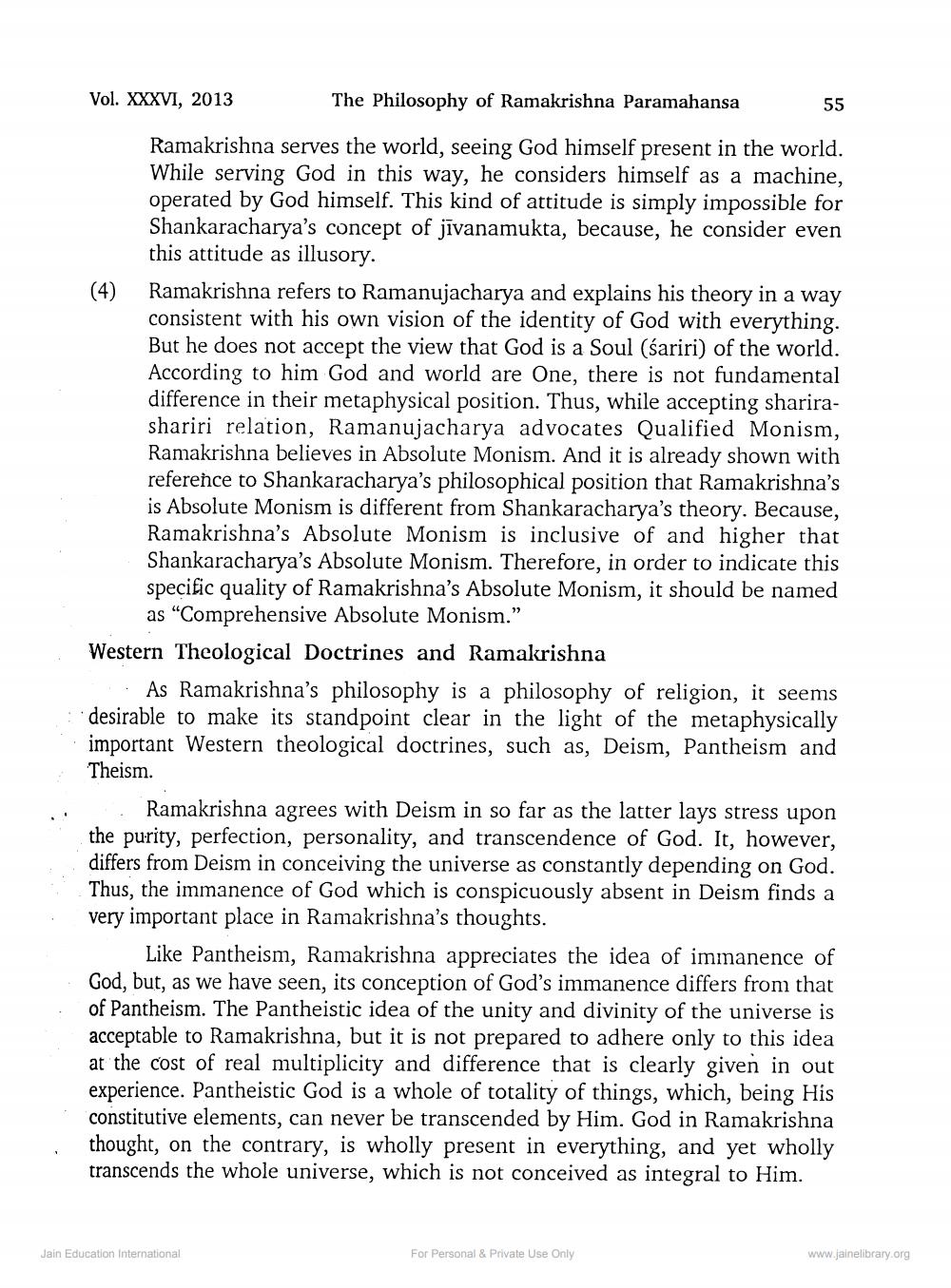________________
Vol. XXXVI, 2013
The Philosophy of Ramakrishna Paramahansa
55
Ramakrishna serves the world, seeing God himself present in the world. While serving God in this way, he considers himself as a machine, operated by God himself. This kind of attitude is simply impossible for Shankaracharya's concept of jīvanamukta, because, he consider even
this attitude as illusory. (4) Ramakrishna refers to Ramanujacharya and explains his theory in a way
consistent with his own vision of the identity of God with everything. But he does not accept the view that God is a Soul (śariri) of the world. According to him God and world are One, there is not fundamental difference in their metaphysical position. Thus, while accepting sharirashariri relation, Ramanujacharya advocates Qualified Monism, Ramakrishna believes in Absolute Monism. And it is already shown with reference to Shankaracharya's philosophical position that Ramakrishna's is Absolute Monism is different from Shankaracharya's theory. Because, Ramakrishna's Absolute Monism is inclusive of and higher that Shankaracharya's Absolute Monism. Therefore, in order to indicate this specific quality of Ramakrishna's Absolute Monism, it should be named
as "Comprehensive Absolute Monism." Western Theological Doctrines and Ramakrishna
As Ramakrishna's philosophy is a philosophy of religion, it seems desirable to make its standpoint clear in the light of the metaphysically important Western theological doctrines, such as, Deism, Pantheism and Theism.
Ramakrishna agrees with Deism in so far as the latter lays stress upon the purity, perfection, personality, and transcendence of God. It, however, differs from Deism in conceiving the universe as constantly depending on God. Thus, the immanence of God which is conspicuously absent in Deism finds a very important place in Ramakrishna's thoughts.
Like Pantheism, Ramakrishna appreciates the idea of immanence of God, but, as we have seen, its conception of God's immanence differs from that of Pantheism. The Pantheistic idea of the unity and divinity of the universe is acceptable to Ramakrishna, but it is not prepared to adhere only to this idea at the cost of real multiplicity and difference that is clearly given in out experience. Pantheistic God is a whole of totality of things, which, being His constitutive elements, can never be transcended by Him. God in Ramakrishna thought, on the contrary, is wholly present in everything, and yet wholly transcends the whole universe, which is not conceived as integral to Him.
i
Jain Education International
For Personal & Private Use Only
www.jainelibrary.org




